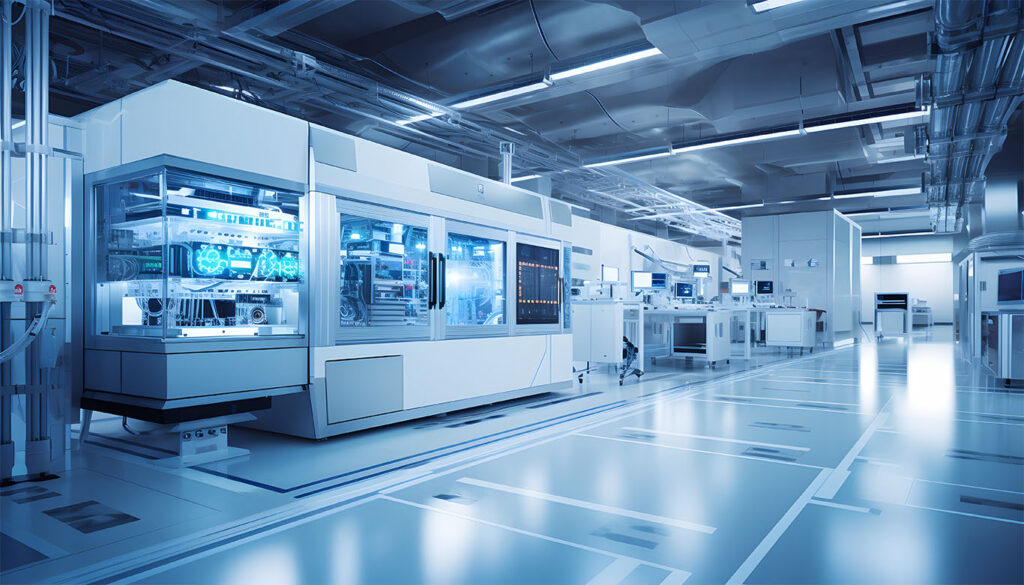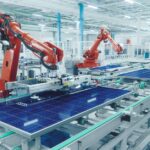Manufacturing has always been a cornerstone of industrial progress, enabling societies to innovate, scale, and deliver products that drive daily life. From the first days of the industrial revolution to today’s digital-first economy, the sector has continually adapted, combining new technologies with traditional practices to meet evolving demands. Today, the future of modern production is defined by innovation, efficiency, and sustainability.
The shift toward smart manufacturing
Modern manufacturing has evolved beyond the simple production of goods. With the rise of automation, robotics, and artificial intelligence (AI), factories are becoming smarter and more adaptive. Digital twins, for example, allow companies to model production environments virtually, identifying inefficiencies and making improvements before they occur in the real world. AI-driven analytics provide insights into everything from machine performance to supply chain optimization, ensuring production lines can adapt quickly to disruptions.
The concept of “Industry 4.0” captures this transformation—where connected devices, cloud systems, and data analysis create smarter workflows. By harnessing this integration, businesses gain not only cost savings but also the ability to deliver higher quality products faster than ever before.
Sustainability at the core
As industries shift, sustainability is no longer a buzzword but a driving factor in decision-making. Manufacturers face increasing pressure from governments, investors, and consumers to reduce environmental impact. This pressure has led to innovations in materials, energy use, and waste reduction. Renewable energy integration in production lines is growing, and many businesses are committing to circular economy practices—designing products for reuse and recyclability.
Green manufacturing initiatives, such as carbon capture and energy-efficient machinery, are gaining momentum. Companies are now considering sustainability not only as a compliance measure but also as a competitive differentiator. Customers are more likely to purchase from brands that align with eco-friendly practices, making it a business necessity.
Evolving materials and processes
One of the most exciting developments in modern production lies in the advancement of materials and processes. From lightweight composites to biodegradable plastics, research continues to push boundaries. Additive manufacturing (3D printing) is also making a significant impact, allowing for rapid prototyping and custom part production with minimal waste.
For example, in the UK, innovation in moulding processes continues to provide industries with versatile solutions. Businesses seeking high-quality and cost-effective production methods often turn to plastic moulding UK specialists, who are combining traditional techniques with cutting-edge technology to deliver precision components at scale. This ability to evolve processes while meeting sustainability goals highlights the importance of material innovation in the modern economy.
The role of global supply chains
Global supply chains have been under scrutiny since the disruptions caused by the COVID-19 pandemic and geopolitical tensions. Many manufacturers are reconsidering their dependence on overseas suppliers, opting instead for nearshoring or reshoring strategies. Localized supply chains can reduce transportation costs, lower emissions, and improve resilience against global shocks.
At the same time, technology is improving visibility across supply chains. Blockchain, for instance, is being used to create secure and transparent records of material sourcing and product movement. This ensures accountability and allows businesses to respond more quickly when issues arise.
The workforce of the future
Innovation in manufacturing isn’t only about machines and materials; people remain central to its success. The skills required in modern production are shifting toward technology integration, data analysis, and problem-solving. This evolution presents challenges for businesses, particularly in training and retaining talent.
Upskilling programs are becoming critical as industries require workers to understand both traditional manufacturing practices and advanced digital tools. Governments and private organizations alike are investing in apprenticeships, technical training, and partnerships with universities to close the skills gap.
Looking ahead
The future of manufacturing will continue to balance efficiency, sustainability, and adaptability. Companies that embrace technological innovation while prioritizing environmental and social responsibility will lead the way. The sector is no longer defined solely by producing more, faster—it is about producing better, smarter, and greener.
As global challenges persist, manufacturing remains at the heart of solutions. Whether through new materials, advanced automation, or sustainable practices, the innovations shaping today’s factories are laying the foundation for a more resilient and responsible future.


